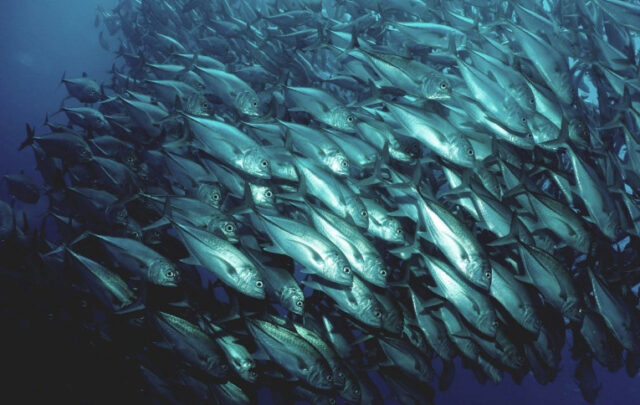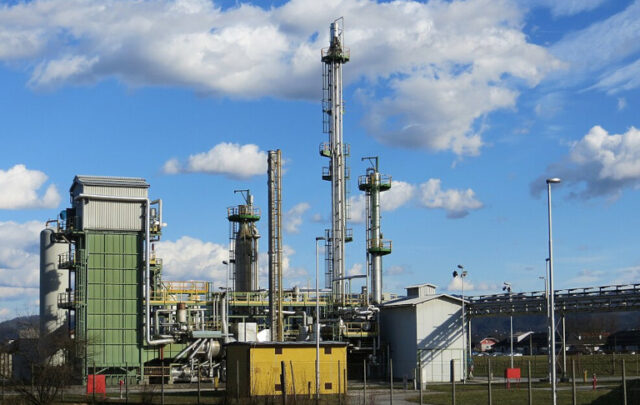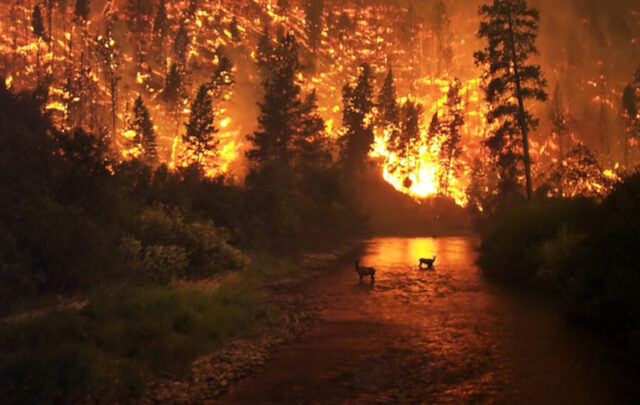Sadly, he’s not alone, which is why this is worth debunking. Gingrich’s sense that oil fields can be brought rapidly online, and his “we beat the Nazis and went to the moon so we can do this” statements reflect the general cultural misunderstandings about how oil is extracted that are endemic in our culture. While his claim that we could “open up enough oil fields in the next year that the price of oil worldwide would collapse. Now, that’s what we would do if we were a serious country.” is a bit of idiocy, it probably isn’t atypical idiocy in a country that knows nothing about the basic geology that underlies just about everything. The only difference is that Gingrich has had every opportunity to learn better, and most Americans haven’t.
Fortunately, Art Berman has a lovely riposte at The Oil Drum:
The U.S. would have to increase field production by more than double current production to become oil independent by increasing domestic production to 14.8 Mbopd. Even peak production in 1970 of 10,000 bopd would only meet 68% of current crude oil consumption. To bring about a collapse in world oil prices, as Mr. Gingrich suggests, would mean increasing U.S. production by substantially more than this.
Maximum daily production from Prudhoe Bay Field, the largest in the United States, was 1.5 million bopd in 1979 (http://en.wikipedia.org/wiki/Prudhoe_Bay_Oil_Field). Mr. Gingrich suggests that we can find more than six additional Prudhoe Bay-sized fields in one year. Prudhoe Bay was discovered in 1968, did not begin production for 11 years, and did not reach peak production until 13 years after its discovery. But Mr. Gingrich thinks that there are many Prudhoe Bay fields waiting to be found that can be at explored, developed and brought to peak production in one year.
I often don’t bother arguing with the “Drill, Baby, drill” folks – the reason is that while I think they are misguided and their lack of understanding of the possibilities of US oil are embarassing, they also have a point – as we get further down the energy curve, most of our available energy resources will be exploited if it is economically viable to recover the oil or the gas. It simply will happen – environmental sensitivity will not be a major factor.
As you may remember, I’ve argued before that Americans will cheerfully shovel live baby harp seals into their furnaces, while explaining to the themselves that live baby harp seals enjoy being burned alive if that’s what it takes to keep them warm and their economy running. Drilling in ANWR, running pipelines across just about anything, or burning coal despite the climate impact are not things that most people will give up – GIVEN no accessible alternative. Most present-day considerations of environmental sensitivity for most Americans are considerations from a position of comfort and security. We can say that “drill baby, drill” is misguided position because we aren’t short of energy – yet. The category of people who are prepared to give up their cars and other luxuries in order to protect the abstract “environment” is actually quite small.
My guess is that what will also happen is that much of the oil that Gingrich imagines is out there and would love to see extracted is that it won’t be economically viable to extract or move it – or that it will go elsewhere, as in the case of the the energy resources that would have travelled down the Keystone pipeline, which will now mostly go to China in all likelihood.
All of which sounds cynical, doesn’t it? The funny thing is that it is and it isn’t. I’m the great believer that people can and will change their lifestyles – and I believe strongly that if baby harp seals aren’t the only choice, people will happily skip the awkward self-justifications for evil. Most of us, raised as slave owners would probably prefer to believe we would have been ardent abolitionists, but that’s probably not true. Instead, we too would have parrotted the repulsive justifications for things that are deeply immoral but that are economically necessary. That is, once we depend on something, the justifications are already in place for all sorts of moral failings.
Imagine it the other way, however – who wants to be the first person to start keeping slaves? If doing something is simply unthinkable, rather than economically necessary, it gets much harder. This is where, I think the possible ground for imagining a future that doesn’t have a “drill, baby, drill” ethos begins – imagining a way of life that people can enjoy and participate wholly in that isn’t dependent on the burning of every resource you can get your hot little hands on. Make it possible to live on an electrical budget made up wholly of much more limited renewables and lower-impact generation, and you can imagine a decent future. Make it possible to do what you need to do without burning the harp seals, and the pressure to drill gets lower, you go after the hard-to-get oil later, and the chance of it staying in the ground and caribou getting to migrate get a lot better.
All of which is just a long digression on Art’s article, but it does, to me, at least, point up the need to do two simultaneous and deeply inter-related things. First, to give our nation a basic education on how energy works. Most of us never learned, and we have to now. The second is to begin the hard work of developing a way of life that doesn’t force us into the self-justification of evil that accompanies a desperate desire to keep things going. Neither is easy. Both are necessary. It might also help to have a president who was energy literate, but we can’t hope for miracles ;-).





